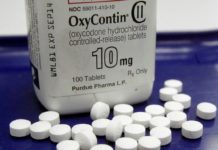A group of addiction treatment specialists from the Seacoast Region in New Hampshire recently gathered to address the effectiveness of the programs offered by local drug rehabs.
New Hampshire’s Seacoast Region has the shortest coastline of all ocean-bordering states in the country and while the walkable beaches along its 13-mile shoreline and its historic cities, such as Portsmouth, are popular among visitors, they have also created an influx of drugs to the area. With the increase in drugs, the number of treatment facilities and drug rehabs in the area has also gone up.
The group of addiction specialists explained on a local radio station that these drug rehabs tend to be criticized not only because they became more popular but also because the public finds it difficult to understand why so many patients relapse after treatment.
The Program Director of the Addiction Recovery Services, John Iudice, explained that while society is quick to judge, recovery is a personal process.
Iudice, who’s also an addiction treatment counselor working in the Seacoast region, added that oftentimes a standard, 28-day program is not long enough to provide sufficient support for patients.
All of the other addiction specialists who joined the discussion emphasized the importance of giving the public better access to educational resources surrounding substance use disorders, promoting supportive relationships and open discussions.
Teaching people about healthy coping mechanisms is one way to assure that they don’t start using drugs or go back to using drugs, they said.
The specialists also stated that it is crucial to show the community that stigma prevents people from getting into a treatment, which is the proven way to saving their lives.
Improved access to detox and drug rehab services remain essential in the area because those with a substance use disorder who fail to receive proper care too often overdose; and too often, help comes too late.
Within the first… (continue reading)

















